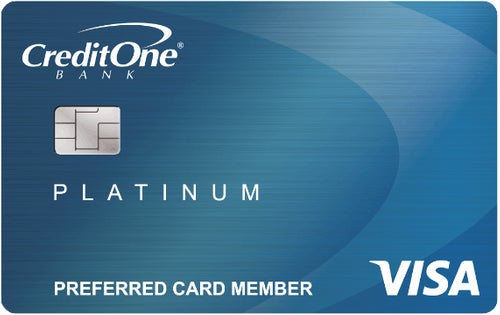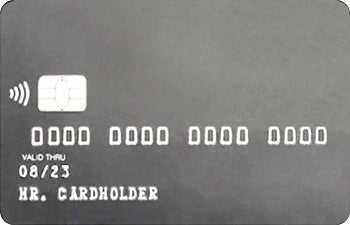'ZDNET Recommends': What exactly does it mean?
ZDNET's recommendations are based on many hours of testing, research, and comparison shopping. We gather data from the best available sources, including vendor and retailer listings as well as other relevant and independent reviews sites. And we pore over customer reviews to find out what matters to real people who already own and use the products and services we’re assessing.
When you click through from our site to a retailer and buy a product or service, we may earn affiliate commissions. This helps support our work, but does not affect what we cover or how, and it does not affect the price you pay. Neither ZDNET nor the author are compensated for these independent reviews. Indeed, we follow strict guidelines that ensure our editorial content is never influenced by advertisers.
ZDNET's editorial team writes on behalf of you, our reader. Our goal is to deliver the most accurate information and the most knowledgeable advice possible in order to help you make smarter buying decisions on tech gear and a wide array of products and services. Our editors thoroughly review and fact-check every article to ensure that our content meets the highest standards. If we have made an error or published misleading information, we will correct or clarify the article. If you see inaccuracies in our content, please report the mistake via this form.
Inflation increases credit card usage, stress among Americans: Survey



The May 2022 Personal Finance and Credit survey released by Credit Sesame found that a greater number of Americans are relying on credit cards to fund routine purchases and expenses as interest rates and inflation reach highs not seen in decades. The Federal Reserve issued a 0.75% increase in its benchmark rates in June, the largest jump since 1994. The consumer price index, which measures inflation, jumped to 9.1% in June from the same period last year.
Credit Cards
The survey, developed by Credit Sesame using Momentive Inc.'s survey tool, polled 1,222 US residents online age 18 and over between May 20 and 21. It was issued to assess the impact of inflation on credit use over the past year.
The following trends highlighted in the survey make life more expensive for consumers relying on credit:
- Credit card users carrying a balance of more than half of their credit limit increased by 9%.
- Late payments increased by 50%.
- The number of people using credit cards jumped 7%, while those using debit cards dropped 3%.
"Inflation and economic adjustments affect us all, but understanding and improving your credit score can protect against these rising costs and interest rates," said Adrian Nazari, CEO of Credit Sesame, in a press release on the company's website. "The results of this survey prove how important it is for Americans to take care of their credit health to stave off the negative impact of any economic downturn."
Inflation makes life more expensive across the board. Incomes are not keeping pace with the increased costs of goods and services. In fact, the press release noted that only 7% of Americans received pay raises that exceeded the increased rate of inflation. As more Americans turn to credit, the higher rates add an additional financial burden to households.
Additional findings from the survey include:
- The number of people spending more than 90% of their paycheck for month-to-month expenses doubled from 17% in 2021 to 34% in 2022.
- The number of people whose spending exceeds their income in a pay period almost doubled from 6% in 2021 to 11% in 2022.
- One in six Americans saw their credit scores decrease between May 2021 to May 2022.
- Consumers with credit scores in the poor-to-very-poor range are most likely to experience stress over money -- 74%.
Why does healthy credit matter?
Credit, by one broad definition, is your ability to borrow money or secure goods or services while agreeing to pay later. The amount and type of credit available to you is determined by your three-digit credit score. FICO scores are the most common credit scoring system used by more than 90% of financial institutions. FICO scores range from 300 to 850. Scores below 580 are considered poor. Anything above 740 would put you into the range of very good to exceptional credit. Customers with scores in this range qualify for the best interest rates and offers.
It's important to maintain a high credit score, or work to improve a lower score, because the score dictates what interest rate -- the amount you're charged by a lender to borrow its assets -- you'll receive when taking out loans or applying for credit cards. The type of deals offered for cell phone plans, insurance products, or deposits required for utilities, for example, also can be affected by your credit score. The lower your score, the more you will pay, as creditors deem you as a high financial risk.
Let say, for example, that you finance a $10,000 used car over 48 months. Customers with excellent credit scores (typically 750 or more) would qualify for an average rate of 8.18%. You will pay $245 a month and $1,759 in interest over the life of the loan. Car buyers with fair credit scores (600-699) are looking at average interest rates of 14.89%. A seven point interest rate jump will increase your monthly payments to $278 per month for a total of $3,332 in interest over the life of the loan. A 51-point drop from 750 in your credit score could cost a buyer an additional $1,573 in interest for the exact same vehicle. Maintaining the highest possible credit score allows you to access credit at the lowest rate. Healthy credit affects your bottom line directly.
How can you improve your credit score?
Credit Sesame's Personal Finance and Credit survey also pointed out that many Americans are misinformed when it comes to basic financial literacy. The results show that nearly one in six don't know their credit score. What's more, 40% were unaware that lenders use a credit score to determine their ability to repay loans.
FICO, the organization responsible for developing the FICO credit score, suggests three main tips that anyone can follow to improve their credit score:
- Fix any errors on your credit report. Retrieve a free copy of your credit report from the three credit reporting agencies -- Equifax, Experian, and Trans Union -- once a year. A study by the Federal Trade Commission showed one in four people found an error on their credit report that could impact their credit score.
- Pay your bills on time. Payment history is the largest factor used to determine your credit score. Even one 30-day late payment can have a significant impact on your score. Adding paying reminders or setting up auto-pay services are great ways to ensure that your bills are paid on time. Improving your score will take time, but with consistency and an on-time payment history, your credit score will improve.
- Reduce the overall amount of debt. Keeping your debt utilization rate below 30% is another key factor that can improve your credit score. Maintaining an outstanding debt balance that is no more than 30% of the available credit should be your goal. Therefore, creating a plan to reduce the amount of outstanding debt will save you money each month. The amount of interest you'll pay each month is calculated based on the outstanding balances owed on loans or credit cards.
Lowering your expenses by qualifying for the best interest rates and paying less interest overall is one tool consumers have to reduce the impact of rising inflation. The National Foundation of Credit Counselors can assist with locating nonprofit credit counselors for those who need additional support getting problems with debt and credit card abuse under control.
What are the best cards to rehabilitate your credit?
ZDNet has profiled several categories of credit cards for those who need to establish or rehabilitate bad credit. From secured cards to cards with no fees and great rewards, with the right tools and a little hard work rebuilding credit is possible.
Unsecured credit cards for people in the rebuilding stage.
- Earn 1% cash back rewards on eligible gas, grocery purchases and mobile phone, internet, cable and satellite TV services. Terms apply.
- Earn 1% cash back rewards on eligible gas, grocery purchases and mobile phone, internet, cable and satellite TV services. Terms apply.
Credit One Bank Platinum Visa offers flexibility in that it is accepted worldwide. There are substantial foreign transaction fees, so keep that in mind.
The card's APR is fairly high, but the trade-off is that it doesn't require a cash deposit up front. Initial credit limits are lower, but your account will be reviewed every six months. Lower credit limits are helpful for those in the rebuilding stage because it limits the chances of overspending. With wise management, your credit limits could be increased.
Pros
- No security deposit required
- Gradual credit line increase with positive usage
- Cash back rewards
Cons
- Annual fee that increases after the first year
- Steep foreign transaction fees
- Initial low limit restricts charging power
View more credit card options for those who want to improve their credit.

Credit One Bank® Platinum Visa® for Rebuilding Credit
Credit cards for people with bad credit
- Earn 2% cash back at Gas Stations and Restaurants on up to $1,000 in combined purchases each quarter, automatically.
- Earn unlimited 1% cash back on all other purchases.
- Earn 2% cash back at Gas Stations and Restaurants on up to $1,000 in combined purchases each quarter, automatically.
- Earn unlimited 1% cash back on all other purchases.
Discover it® Secured is a solid option for consumers looking to rebuild credit. The deposit required serves as your credit limit. After seven months of responsible credit management you are eligible to have your card converted to an unsecured line of credit. Discover also offers a cashback match program that at the end of each year doubles all rewards you've earned .
Discover also provides access to your FICO score, which helps you track progress while rebuilding your score.
Pros
- No credit score requirement
- Cash back rewards
- No annual fee
- Automatic transition to unsecured card
Cons
- Credit line will be low if your security deposit is low
- High APR
- Few other perks associated with rewards cards
View a complete list of the 5 best unsecured credit cards for people with bad credit.

Discover it® Secured
A great option for people with no credit.
Petal® 2 "Cash Back, No Fees" Visa® credit card
Save more with no annual fee.
Petal® 2 "Cash Back, No Fees" Visa® Credit Card, issued by WebBank, is recommended for customers with limited, fair, or excellent credit. Cashback rates range from 2% to 10%, depending on the spending category. Your rewards rate can increase with an on-time payment history. Applicants begin with a $500 minimum credit limit. This card is a gem for those with no credit history, because you can access great cashback rewards without the cost of an annual fee.
Pros
- No fees (annual, late/return payment, or foreign transaction)
- Limited/no credit history requirement
- Generous rewards -- up to 10% cash back on certain spending categories
Cons
- Variable APR range is high
- No introductory bonus
- Higher credit limits may conflict with restrictive budgets
View the complete list of 6 best starter credit cards for people with no credit.